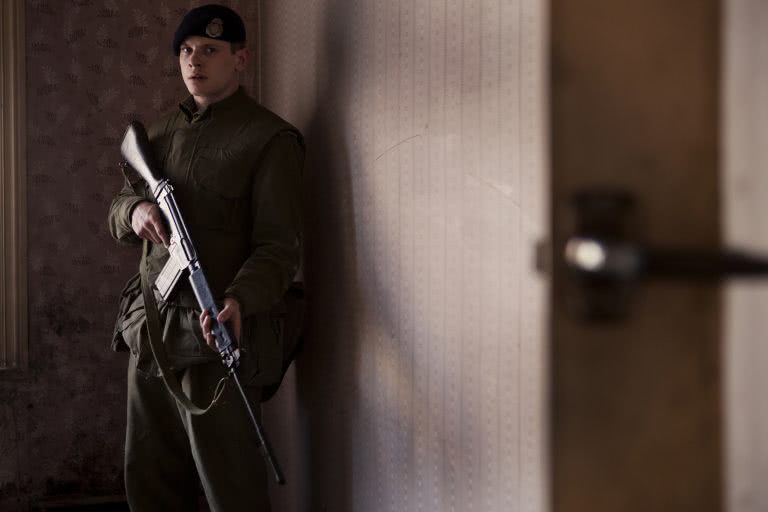On the surface, ’71 may seem to be a shoot-’em-up history lesson set against the violent backdrop of the Troubles in Northern Ireland.
But savvy cinemagoers will quickly realise that the story represents far more than a young soldier who is separated from his platoon behind enemy lines. As director Yann Demange discusses, war is war and is never black and white.
Although the young filmmaker was initially drawn in by the strength of the script, there was one element in particular that convinced him to sign on for ’71. “I really fell in love with one of the characters, Jimmy,” he explains. “When I read that character, I knew that I was in. That kid is so perfectly formed.”
He continues, “The way that Jimmy captures how hate is handed down and how children can just spout opinions that they don’t clearly understand – it’s just an incredible piece of writing. It’s that cycle of perpetuating hatred and anger. He was also just so charming, funny and fresh.”
Something about ’71 that strikes particularly hard is its representation of the children involved in the conflict, as well as just how young the soldiers were on both sides. I ask Demange if this is something he and writer Gregory Burke wanted to specifically highlight. “Absolutely,” Demange replies. “It’s a fact about the situation. When I was researching the film, I met people who were very high up on both sides. There was this one breakthrough moment where I was talking to someone who was describing the things they had to do, and I asked how old they were at the time. He said he was 19 or 20 and my jaw hit the floor.
“I continued researching and I found that a lot of the captains, as well as the sergeants in the British Army, were between 18 and 23. It was mind-blowing when I found that out, because we’re talking about young boys. Under these extraordinary circumstances, look how far [war] can stretch our humanity, look how far people will go for the strength of their convictions.”
Human behaviour, and the exploitation of it by people in power, is intrinsic to the film. The protagonist, Gary Hook (played by Jack O’Connell of Skins and Unbroken fame), is just a young man who wants to belong and who is ultimately used and betrayed.
“Oh my God, you just hit the nail on the head,” Demange replies. “As an outsider growing up, I understand the desire to want to belong to a tribe, to have a sense of home and family. I think armies fill that gap for a lot of kids, because they welcome them with open arms. But then they’re so quick to sacrifice these kids in messy, dirty conflicts where no-one really knows what’s going on.”
Demange injected his research into the film by casting age-appropriate and almost exclusively unknowns for his roles. This choice was so effective and jarring that one can’t help but draw parallels between the young soldiers of the film and the ones who are currently being recruited by the likes of ISIS.
“Absolutely. When I read the screenplay and decided to make the film, it was because I felt it was almost contemporary. Gregory really identified a pattern in human behavior that keeps repeating itself.
“You could be talking about Iraq, Afghanistan, the Ukraine – there are lots of examples and we all have them in our history. [The film] has really captured something that we are in the middle of right now, which is a global crisis. We need to get to grips about it soon and break the pattern.”
’71 is in cinemas Thursday March 19.
































